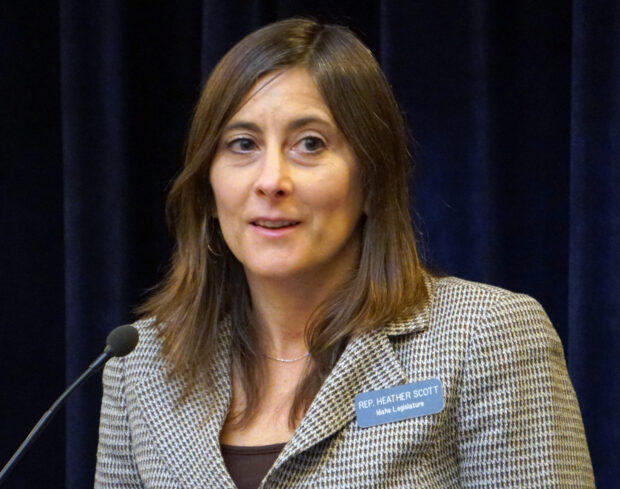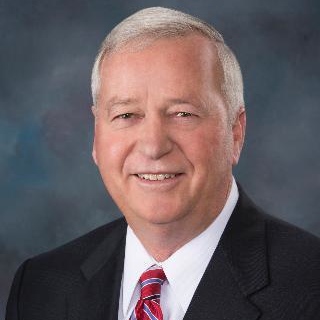Voting along party lines, the House State Affairs Committee endorsed a bill to crack down on “repeat” bond issues.
Several school administrators testified against House Bill 347, which now goes to the floor for a vote, perhaps later this week.
HB 347 would require school districts and other taxing entities to wait at least 11 months to re-run a bond issue that voters rejected.

“It protects voters from aggressive taxing districts,” said the bill’s sponsor, Rep. Heather Scott, R-Blanchard. “People know what they can afford. … These votes are being ignored.”
At least in theory, school districts could try the same bond issue on four designated election dates: in March, May, August and November. And in 2019, the Minidoka County, Filer and Kellogg districts ran multiple bond issues, failing to get voter approval.
These repeat bond issues are uncommon, said Idaho School Boards Association Executive Director Karen Echeverria. And in many cases, districts that run a second bond issue receive majority support the first time — sometimes narrowly missing the two-thirds supermajority threshold needed to pass a bond issue.
“We believe this legislation is a solution in search of a problem,” Echeverria said.
Two Treasure Valley superintendents argued for flexibility in running bond issues.
Craig Woods, now the superintendent of the Emmett School District, related his experience at the Notus School District, and his attempts to replace an aging elementary school. A May 2014 bond issue failed. The district ran a new bond issue in November 2014, proposing to move the site of the new school, but this also failed. The bond issue finally passed in May 2015, after the district honored patrons’ request to tear down the old school.
“We listened to them as a board,” Woods said.
In Vallivue, a $65.3 million bond issue passed in March 2019 by only two votes. If the fast-growing district had been forced to wait a year to rerun the bond issue, the cost of the building projects would have only increased, Superintendent Pat Charlton said.
A plethora of bond issues places a confusing burden on taxpayers, said Fred Birnbaum of the Idaho Freedom Foundation, which supports Scott’s bill.
“It’s just not the way an electoral system ought to operate,” Birnbaum said.
The House passed a similar bill in 2018, but it stalled in the Senate.
House Education Committee introduces first bill
A Nampa Republican is pushing a bill requiring schools to wait until after Labor Day to start the new school year — in order to accommodate fairs and summer tourism.

Rep. John Vander Woude’s bill is the first — and so far only — piece of legislation that the House Education Committee has considered in the 22-day-old legislative session.
Vander Woude’s bill adds two lines to the existing law addressing the governance of schools and the opening and closing of the school year.
“Instructional hours shall not begin prior to the Tuesday following Labor Day in any academic year,” the new section of the bill reads, in its entirety.
The bill would not change the number of instructional hours or days required. If the bill passed, school districts would likely need to push back the end of the school year.
“I’ve seen the fair go on in August, the tourist industry goes until Labor Day and school keeps starting earlier and earlier and earlier and I finally said, ‘I’ve had enough,” Vander Woude said. “Even though I don’t have kids in school, I have grandkids.”
The committee voted unanimously to introduce the bill, even though Rep. John McCrostie, D-Garden City, said he wouldn’t necessarily support it if it returns for a full hearing.
The bill was introduced despite a clumsy motion from Rep. Dorothy Moon, R-Stanley. Moon moved to “have a print hearing.” In actuality, Monday’s meeting itself was the print hearing for the bill. It is called a print hearing because legislators held the hearing to consider “printing” or introducing the bill.
Regardless, Rep. Ryan Kerby, R-New Plymouth, seemed to understand that Moon wanted to print the bill and have a full hearing on it at a future date.
Presidential searches
A divided Senate Education Committee endorsed a bill that would narrow the scope of searches for new college and university presidents.
Senate Bill 1234 would allow the State Board of Education to release the names of only three presidential finalists. The board now must name five finalists.
That current requirement caused a series of problems during a recent round of presidential searches, State Board spokesman Mike Keckler told Senate Education. Some applicants were uneasy about having their names made public, if they were still just one of five finalists. The list of finalists sometimes included a long-shot finalist who “didn’t stand a chance,” Keckler said. And even so, the schools were on the hook to bring all five candidates in for interviews and meetings with faculty, staff and students.
The State Board discussed the change in open records law with the Idaho Press Club, which does not oppose the bill.
The bill did run into some objection in committee. Sen. Jim Woodward, R-Sagle, questioned why the State Board was carving out such a narrow exemption to the law. “It seems oddly specific.”
Keckler said the current law “jeopardized” at least one presidential search.
Over objections from Woodward and Sen. Lori Den Hartog, R-Meridian, SB 1234 now goes to the Senate floor.
Disclosure: Idaho Education News editor Jennifer Swindell chairs the Idaho Press Club’s First Amendment Committee, which represents the news media on public access issues.
